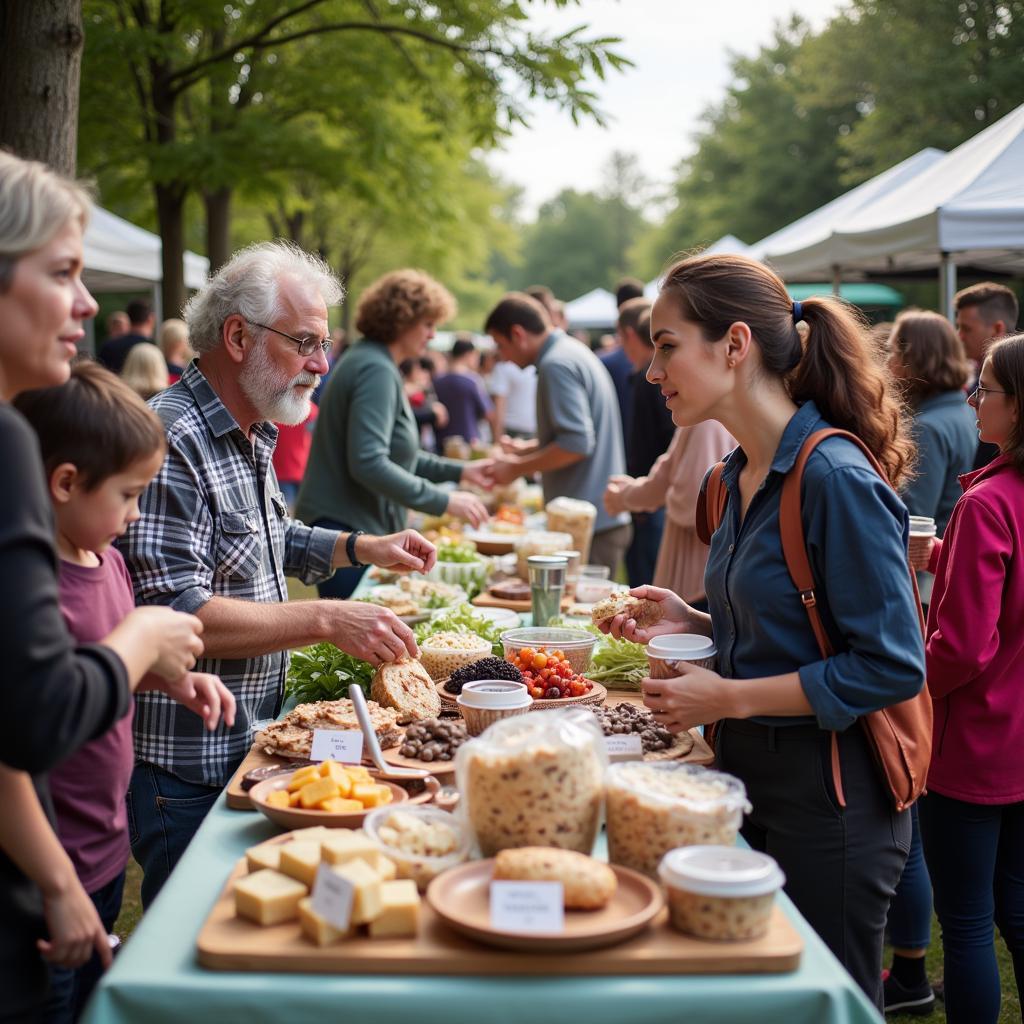Michigan Cottage Food laws offer a fantastic opportunity for aspiring food entrepreneurs to turn their culinary passions into profitable businesses. These laws provide a framework for selling certain homemade food products directly to consumers, allowing you to share your delicious creations without the complexities of a commercial kitchen. Whether you’re a seasoned baker, a jam-making enthusiast, or a pickle pro, understanding Michigan cottage food regulations can open doors to a fulfilling and potentially lucrative home-based business.
Navigating the Michigan Cottage Food Law Landscape
Michigan’s cottage food law provides a clear path for home-based food businesses to thrive. This law specifies the types of food that can be sold, labeling requirements, and where you can sell your products. By understanding these guidelines, you can ensure your business operates legally and safely. Knowing the ins and outs of the mi cottage food law is crucial for your success.
One key aspect of the law is the list of approved foods. These typically include baked goods, jams, jellies, candies, dry mixes, and certain other non-potentially hazardous foods. Foods that require refrigeration, such as meats, dairy products, and most prepared meals, are generally not permitted under the cottage food law. This focus on shelf-stable products minimizes the risk of foodborne illness. Proper labeling is also essential. Your labels must include the name and address of your business, the name of the food, ingredients, weight or volume, and a statement indicating that the product was made in a home kitchen that is not subject to routine inspections.
Where Can You Sell Your Cottage Food Creations?
Michigan cottage food law dictates where you can sell your products. Direct sales to consumers are allowed at farmers markets, roadside stands, and other approved venues. Selling online or wholesale to retailers is generally prohibited. This direct-to-consumer approach fosters a personal connection between you and your customers, allowing you to share your story and the passion behind your products.
Understanding where you can sell your products is just as crucial as knowing what you can sell. Michigan cottage food laws specify that sales must be direct to consumers, fostering a connection and building trust. Farmers markets are a popular venue, offering a vibrant atmosphere and access to a large customer base. Roadside stands provide another option, allowing you to connect with your local community.
 Michigan Farmers Market Cottage Food Vendors
Michigan Farmers Market Cottage Food Vendors
Is Cottage Food Right for You? Taking the First Steps
Starting a cottage food business in Michigan can be an incredibly rewarding experience. However, it’s essential to carefully consider if it’s the right path for you. Do you have the time, resources, and dedication to build a successful business? Are you passionate about creating delicious, high-quality food products? If the answer to these questions is yes, then the Michigan cottage food law might be the perfect opportunity for you. Resources like the michigan cottage food law 2023 are invaluable for staying updated.
One of the initial steps is to thoroughly research the cottage food law nc and familiarize yourself with all the requirements. This will lay a strong foundation for your business. Next, develop a solid business plan, outlining your target market, product offerings, pricing strategy, and marketing plan. Creating a unique brand identity is also crucial for standing out in a competitive market. “Starting small and focusing on quality over quantity is key to building a sustainable cottage food business,” says Sarah Miller, a successful cottage food entrepreneur in Ann Arbor.
 Michigan Cottage Food Business Planning
Michigan Cottage Food Business Planning
Conclusion: Embark on Your Cottage Food Journey in Michigan
The Michigan cottage food law presents a fantastic avenue for turning your culinary passion into a thriving business. By understanding the regulations, creating high-quality products, and connecting with your customers, you can build a successful and rewarding cottage food enterprise. So, take the leap and unleash your inner chef! Remember to stay informed about the latest updates to the Michigan cottage food laws to ensure continued compliance.
FAQs about Michigan Cottage Food
- What types of food can I sell under the Michigan cottage food law?
- Where am I allowed to sell my cottage food products?
- Do I need a license to operate a cottage food business in Michigan?
- What are the labeling requirements for cottage food products?
- Are there any restrictions on the annual gross sales for a cottage food operation?
- What are the potential penalties for not complying with the Michigan cottage food law?
- Where can I find more information about the Michigan cottage food law?
For further assistance, please contact us at Phone Number: 02437655121, Email: [email protected], or visit our address: 3PGH+8R9, ĐT70A, thôn Trung, Bắc Từ Liêm, Hà Nội, Việt Nam. We have a 24/7 customer support team.